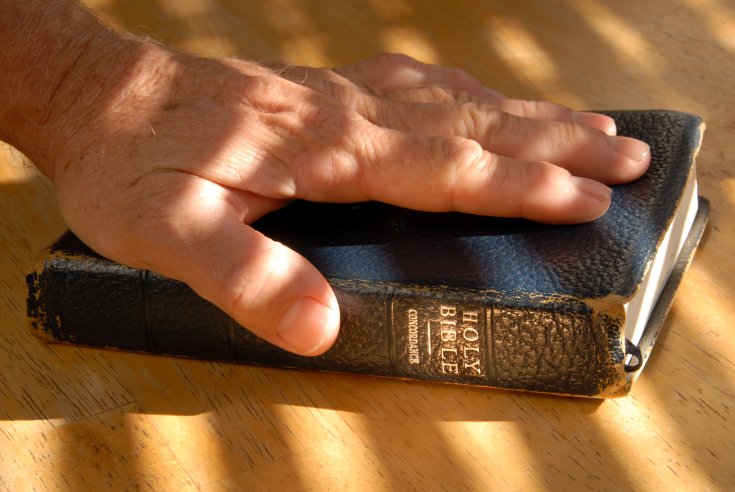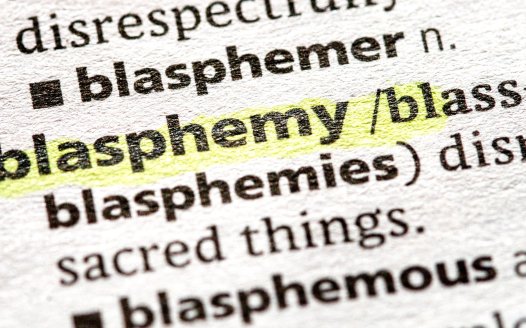Study: Jurors could be biased against people who don’t swear to God
Posted: Tue, 4th Apr 2023
Bias against people who don't swear a religious oath in court may lead to hundreds of additional convictions, researchers have said.
Research from Royal Holloway, University of London has found that defendants who don't "swear by Almighty God" run a higher risk of being found guilty by jurors who themselves take a religious oath.
In the UK, court witnesses can choose to either swear a religious oath to God, or make a secular affirmation, that they will give truthful evidence.
The researchers concluded that the religious oath "is an antiquated legal ritual that needs reform".
The National Secular Society is calling for the oath and affirmation to be replaced in light of the research.
Religious oath-takers more likely to discriminate against secular affirmers
The researchers held two surveys which found that people associate the religious oath with credible testimony; and that people, especially those who are religious, discriminate against defendants who choose instead to affirm.
In a further experiment, participants acting as 'jurors' watched a video of a mock trial, in which the 'defendant' either swore a religious oath before giving evidence or made the secular affirmation.
The participants were themselves required to choose to swear or affirm that they would try the defendant in good faith.
Overall, the defendant was not considered guiltier when affirming rather than swearing. However, jurors who themselves swore a religious oath were more likely to find the affirming defendant guilty.
The study noted that moral suspicion of atheists is "globally widespread and deeply entrenched", with many people associating atheism with immorality.
Researcher Professor Ryan McKay said: "If taking the oath is seen as a sign of credibility, this could lead to discrimination against defendants who are not willing to swear by God".
Professor Colin Davis, who also collaborated on the work, said: "Discrimination against defendants who choose not to swear an oath could lead to dozens, if not hundreds, of additional convictions every year".
In a 2001 review of the criminal courts of England and Wales, Lord Justice Auld recommended that the witness's oath and affirmation be replaced by a solemn promise to tell the truth. This proposal provoked protests from church leaders.
A further proposal to end the swearing of oaths on the Bible and other holy books in courts in England and Wales was considered, but ultimately rejected by magistrates in 2013. The motion called for oaths and affirmations to be replaced by a promise to "very sincerely tell the truth".
Magistrates Association members who supported the proposal argued it would make the justice system fairer, more relevant and help to convey the importance of what witnesses are saying.
But senior figures in the Church of England called it "another attempt to chip away at the country's Christian foundations" and at least one who member who rejected the motion expressed concern that that magistrates would be "pilloried for going against centuries of tradition". Church leaders also argued that religious oaths strengthen the value of witnesses' evidence.
The research concluded that continued use of the oath "may make justice more difficult to obtain for those who are unwilling to swear by a God they do not believe in".
Findings are "disturbing", says NSS chief executive
NSS chief executive Stephen Evans said: "These findings underline the urgent need to replace court oaths and affirmations with a single, secular solemn promise to give truthful evidence.
"It is disturbing that defendants could find themselves wrongly convicted if they choose to make a secular affirmation rather than swear an oath to God.
"There is a value in requiring witnesses to acknowledge publicly before they give evidence that they are under a solemn duty to tell the truth.
"But the process for achieving this should be universal, rather than the multifaith mishmash of oaths and affirmations we have now.
"Tradition shouldn't stand in the way of a secular legal system which treats everyone equally and which prioritises the fair administration of justice above all."
What the NSS stands for
The Secular Charter outlines 10 principles that guide us as we campaign for a secular democracy which safeguards all citizens' rights to freedom of and from religion.








